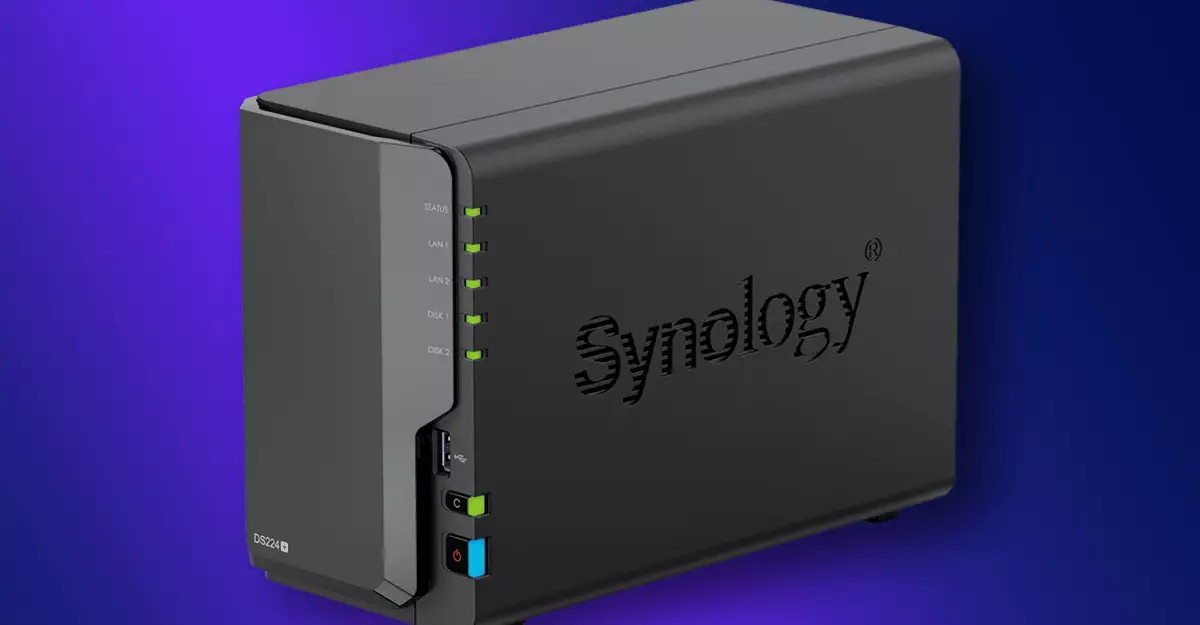As technology progresses, brands often find themselves at a crossroads between innovation and user flexibility. Synology, a prominent player in the network-attached storage (NAS) market, is set to make noteworthy changes that may reshape user experience and expectations around storage solutions. While Synology’s existing devices remain unaffected, the introduction of new restrictions for third-party hard drives in future models paints a complex picture of what users can expect.
These forthcoming restrictions come at a time when NAS systems serve as quintessential hubs for data storage, media sharing, and backup solutions for both homes and businesses. By limiting the use of third-party drives, Synology asserts its commitment to reliability and performance, but at what cost to consumer choice? As the competitive landscape intensifies, the company faces scrutiny over its strategy, situated in a delicate balance between maintaining a quality ecosystem and potentially alienating its base.
The Rationale Behind Drive Restrictions
Synology asserts that these restrictions are to enhance compatibility and system reliability. According to the company’s spokesperson, extensive internal testing suggests that Synology-certified drives are less prone to failure and compatibility issues, which could otherwise disrupt user experiences. The intention is clear: drive performance and longevity lie at the crux of this decision. However, the subjective cost of this decision must be evaluated from various angles.
While technical validation and support have merit, the implications of restricting user choices raise valid concerns. Consumers often gravitate toward various third-party options that offer competitive pricing and distinctive features. By limiting access to these alternatives, Synology may inadvertently push users toward higher costs associated with proprietary drives—an ironic move for a brand that positions itself as a forward-thinking provider of accessible technology solutions.
Consumer Choices and Market Dynamics
The landscape of consumer technology thrives on diversity. Apple, for instance, is frequently criticized for its restrictive ecosystem—a notable imbalance between brand loyalty and user agency. Synology’s decision to limit third-party hard drive choices may spark heated debates among users who value freedom of choice in their tech stack. The NAS market, already competitive, may see a ripple effect as users evaluate alternatives that prioritize flexibility over restrictive ecosystems.
Indeed, the rationale for this shift could jeopardize Synology’s standing amongst budget-conscious users who are often drawn to NAS systems for their capability to merge cost-effectiveness with utility. Third-party drives typically present a valuable opportunity for consumers looking to optimize their setups without breaking the bank. Limiting access to such options could inadvertently position competitors to capture a market segment eager for flexibility—an opportunity Synology is risking to stamp out guaranteed compatibility.
The Silver Lining: Existing Devices Are Unaffected
For current Synology NAS users, the silver lining is clear: existing systems will not face these restrictions. For now, users can continue leveraging their existing drives without worry. However, the long-term implications for new users and viable alternatives remain a significant concern. Those who intend to invest in future Synology products may find themselves entangled in a system designed to funnel them toward a limited selection of proprietary hardware.
This scenario emphasizes the importance of transparency from Synology as it emphasizes its dedication to enhancing customer experience through innovation. A clear communication strategy regarding the rationale behind these changes, along with an accessible dialogue with users, can be highly beneficial. Engaging the community in these decisions may help stave off potential backlash and reinforce a sense of loyalty, even with restricted choices.
Looking Ahead: The Balance Between Reliability and Choice
Synology’s announcement serves as a crucial reminder of the ongoing dialogue around user agency and corporate responsibility in technology. While it is essential for companies to ensure quality performance and decrease compatibility issues, they must tread carefully on the fine line that distinguishes support from restriction. As Synology’s future unfolds, it will be vital for the company to navigate this landscape judiciously, striving to maintain user trust while fostering innovation.
In an era driven by consumer demand for tailored tech solutions, Synology must confront the challenge head-on—ensuring robust systems without compromising the choice, and ultimately, the satisfaction of its users. Only time will tell how the company’s strategy will play out in a competitive arena, but one thing is unmistakable: the importance of user choice remains paramount in this ever-changing digital age.

